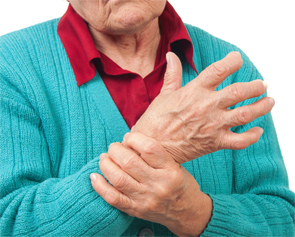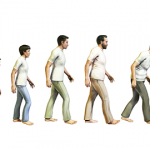
Studies indicate that a number of modifiable targets exist that we can focus on to help prevent the onset of widespread pain in older adults.
Hriana/shutterstock.com
SAN FRANCISCO—A broadening of the medical community’s horizons in how pain is regarded and treated in older adults, including those with osteoarthritis and other rheumatic diseases, is sorely needed, a researcher said at the 2015 ACR/ARHP Annual Meeting.
Incidence
Studies show that a large percentage of older adults each year see physicians for such issues as lower back pain and knee pain, and research shows that pain correlates with less healthy aging in older adults. Yet it is an area that is relatively little studied, said Ross Wilkie, PhD, research fellow in epidemiology at Keele University in the U.K.
His remarks were made in a session that also included a look at the way the pain is viewed in the U.S., and U.S. initiatives in trying to improve pain-related healthcare and research.
Dr. Wilkie discussed data out of Scotland that show the extremely high rate at which older adults see doctors for pain. Over 90% of women between 55 and 64 visit a doctor for lower back pain each year, according to National Services Scotland.1 About 70% of men in that age group see a doctor for that reason. Data for knee pain were similar.
Studies have also shown that older adults often have pain issues in multiple areas, Dr. Wilkie said.
“We know that with age pain accumulates, and over time, people begin to have two or more problems,” he said. One study found that almost 50% of women age 60 or older reported pain at four or more sites.2
Pain & Healthy Aging
Dr. Wilkie and his team have studied the link between pain and healthy aging—a look at the overall “success” in aging that factors in cognitive, physical and mental well-being, social participation and quality of life.3 Examining data from nearly 3,000 study participants with a median age of 61, researchers found that having a higher rate of pain at baseline correlated with a worse score on the Healthy Aging Index. Furthermore, as pain increased, so did the worsening of the index scores.
“People who came into the study with pain had aged less successfully up until baseline, and the more pain that people had, the more unsuccessfully they aged,” Dr. Wilkie said.
The study also found that pain seems to affect women more severely than it does men: When women have pain, they tend to age in a manner that is less healthy than men with pain do.


